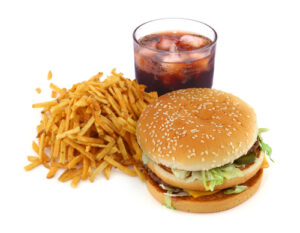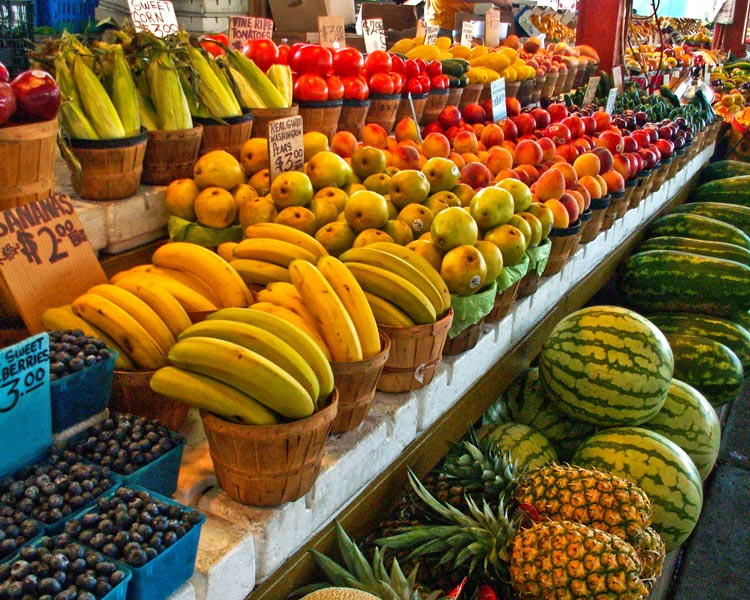While the purpose of a documentary film can vary, most documentaries are made with the intention of promoting one thing: change. By uncovering hidden truths and enlightening viewers with valuable information, a documentary filmmaker hopes to help people realize there’s a problem and do their part to fix it.
Shedding Light on Unhealthy Truths
Such is the case with food documentaries, which look to help audiences discover disturbing secrets about the very food we put into our bodies. Whether the focus is on unsanitary conditions of animals and overuse of chemicals or the complete lack of nutritional value in today’s fast food chains, these kinds of films want viewers to rethink if what they eat everyday is actually doing them good.
Of course, it’s not easy taking on arguably one of the most powerful industries on Earth. The food industry is a colossus, which means it’s to their benefit to keep unsavory facts about food production in the dark. Food documentary filmmakers certainly have their work cut out for them, but has their work actually shown signs of any impact?
You Are What You Eat
To answer that question, one must look at perhaps the most popular food documentary of all time: “Super Size Me.” This film follows a man on a 30-day diet consisting only of McDonald’s food. While eating three McDonald’s meals a day, he went from a healthy 185 pound weight to a heavy 215 pounds — all in one month.
Despite walking 2,000 steps a day, which matches the average American’s daily physical activity, the man saw his fat content rise 7 percent and cholesterol rise 65 points, essentially doubling his risk of heart disease. The three doctors featured in the film were astounded by the change and even suggested he give up the diet to avoid health problems.
“Super Size Me” became a huge success, grossing more than $11 million in box office revenue. People were flooding into theaters to learn just how unhealthy the fries and burgers they’ve been eating themselves and feeding their children actually are.
Our Food Industry
Four years later, Robert Kenner released his own food documentary, titled “Food, Inc.” This film also struck chords across America, revealing the corporate side of food production. Viewers gasped as they saw the cruel treatment and sad, short lives of the animals eventually slaughtered, packaged, and distributed at stores to eat.
The power of Kenner’s film is fueled by a simple, ugly reality: Finding meat that isn’t made from abused animals is difficult today. It was the perfect film to follow up “Super Size Me” because it helped audiences realize that just because they stopped eating at McDonald’s didn’t mean they’d solved the problem of supporting a controversial system within a controversial industry.
Making An Impact
Both of the food documentaries we mentioned managed to influence thousands of people across America. But it hardly matters if food production and consumer habits remain basically the same. So do food documentaries actually influence the food industry to change?
Between these two influential movies, the answer is yes. Change did happen. In the last decade we’ve seen more regulation of trans fats in food, including stricter nutritional labeling. Even McDonald’s has introduced healthier food options while also using their resources to educate children on eating correctly. They even cut ties with long-time egg supplier Sparboe Farms, who received backlash for alleged animal cruelty. And just this month the World Health Organization (WHO) endorsed the idea of a sugar tax for sugary drinks. Food documentaries, and increased public awareness, are certainly behind this increase in conversation.
The fact that “Super Size Me” and “Food, Inc.” alone helped create change in the world’s biggest food chain on the planet is a testament to the power of the food documentary. The fact that countless more food documentaries have been produced since them also helps prove one thing: Although slow and steady, food documentaries are making a difference.
Best of all, we’ve seen these game-changing films — and the makers behind them — have a direct positive impact on NYFA documentary students and alumni. Warrior Poets’ Matthew Galkin, is an instructor in our Documentary Filmmaking Department. This community connection to award-winning and active documentary filmmakers is only a small part of why the New York Film Academy’s Documentary Filmmaking School has been rated by Independent Magazine as among the 10 Best Documentary Programs.
What other ways have you seen food documentaries impacting the food industry? Have you personally felt influenced by a food documentary? Let us know in the comments below!





